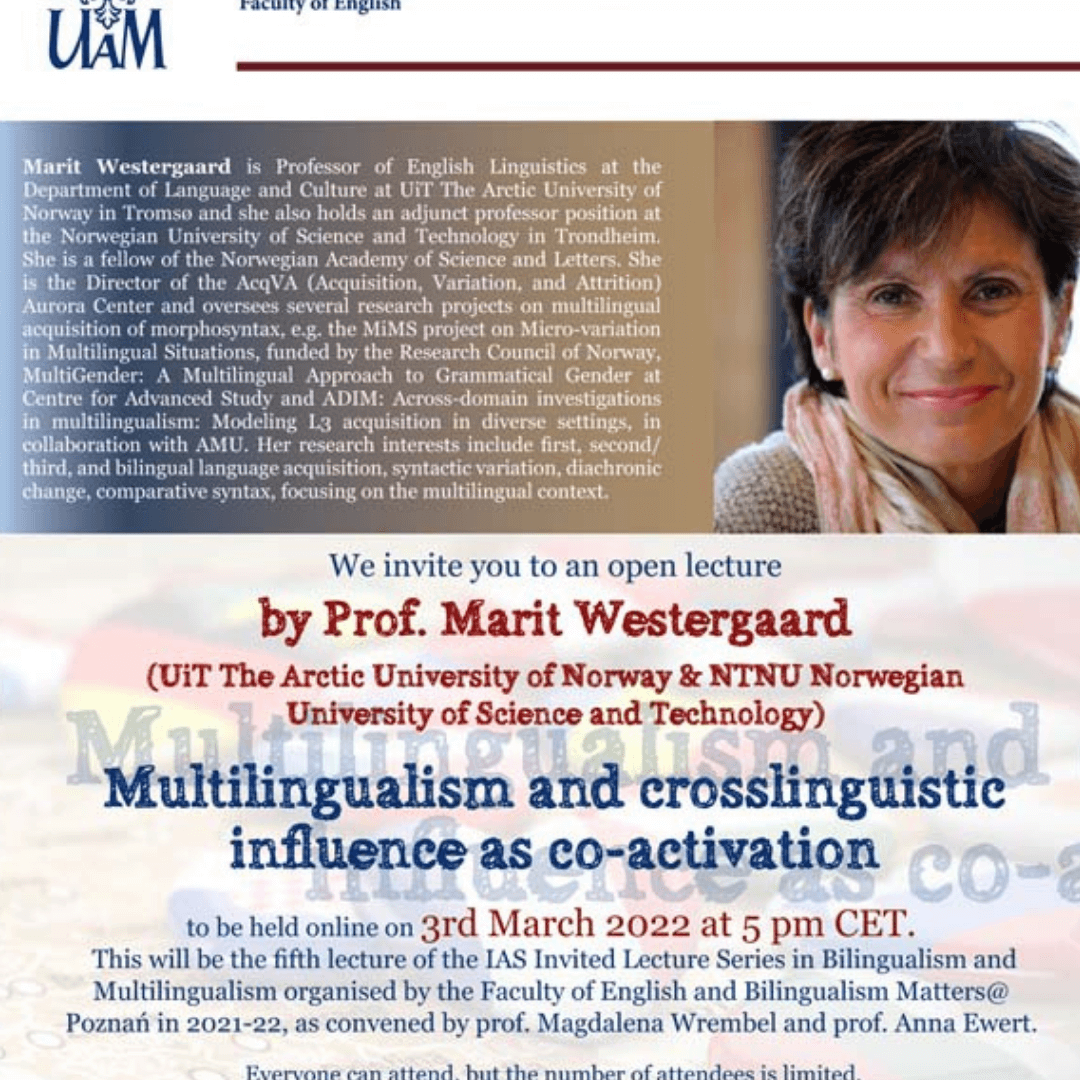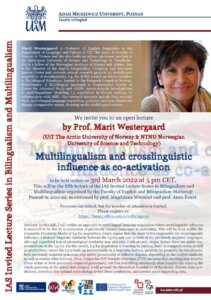ONLINE Lecture: prof. Marit Westergaard 3rd March at 5 pm

On behalf of Adam Mickiewicz University, we would like to invite you to an open lecture by Prof. Marit Westergaard (UiT The Arctic University of Norway & NTNU Norwegian University of Science and Technology) on “Multilingualism and crosslinguistic influence as co-activation” to be held online on 3rd March 2022 at 5 pm CET.
This will be the fifth lecture of the IAS Invited Lecture Series in Bilingualism and Multilingualism organised by the Faculty of English and Bilingualism Matters@Poznań in 2021-22, as convened by prof. Magdalena Wrembel and prof. Anna Ewert.
Please register at https://forms.office.com/r/vvB1J4gvs0 to receive the link to the online meeting.

Prof. Marit Westergaard
“Multilingualism and crosslinguistic influence as co-activation”
Abstract: In this talk, I will outline an approach to multilingual language acquisition where crosslinguistic influence is assumed to be due to co-activation of previously learned languages in processing. This will be done within the Linguistic Proximity Model of L3/Ln acquisition, which argues that the main factor responsible for crosslinguistic influence is abstract linguistic similarity between the L3/Ln and one or both of the previously acquired languages, although superficial lexical/phonological similarity may also play a role at early stages, before there are stable representations in the L3/Ln. On this model, L3/Ln acquisition is learning by parsing (both in comprehension as well as production), where the L3 is built up incrementally in a step-wise fashion, property by property. In this process, both previously acquired grammars stay active (presumably to different degrees, depending on the level of similarity as well as certain other factors). Thus, I argue for Full Transfer Potential (FTP), meaning that anything may transfer (from either or both previously acquired grammars), not that everything necessarily does transfer (by copying the whole grammar at the initial state/stages). I will present the theoretical foundation of the model, discuss some predictions, introduce the optimal methodology to test these predictions, and present some supporting data.
Marit Westergaard is Professor of English Linguistics at the Department of Language and Culture at UiT The Arctic University of Norway in Tromsø and she also holds an adjunct professor position at the Norwegian University of Science and Technology in Trondheim. She is a fellow of the Norwegian Academy of Science and Letters. She is the Director of the AcqVA (Acquisition, Variation, and Attrition) Aurora Center and oversees several research projects on multilingual acquisition of morphosyntax, e.g. the MiMS project on Micro-variation in Multilingual Situations, funded by the Research Council of Norway, MultiGender: A Multilingual Approach to Grammatical Gender at Centre for Advanced Study and ADIM: Across-domain investigations in multilingualism: Modeling L3 acquisition in diverse settings, in collaboration with AMU. Her research interests include first, second/third, and bilingual language acquisition, syntactic variation, diachronic change, comparative syntax, focusing on the multilingual context.
